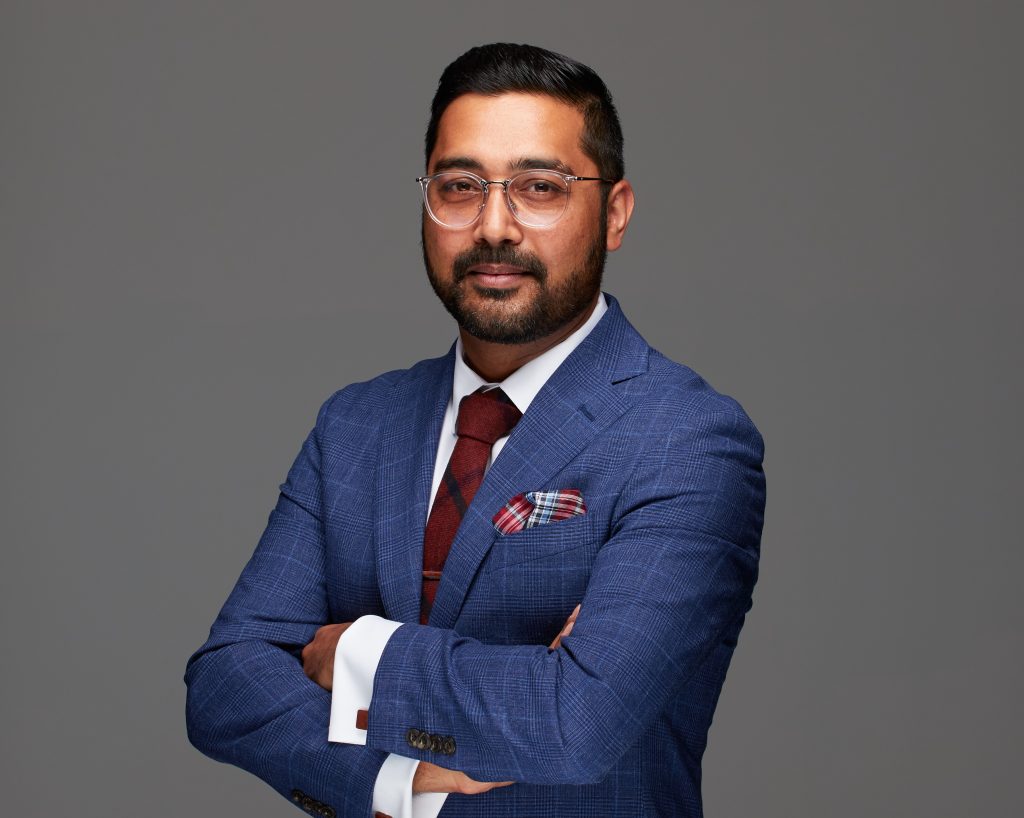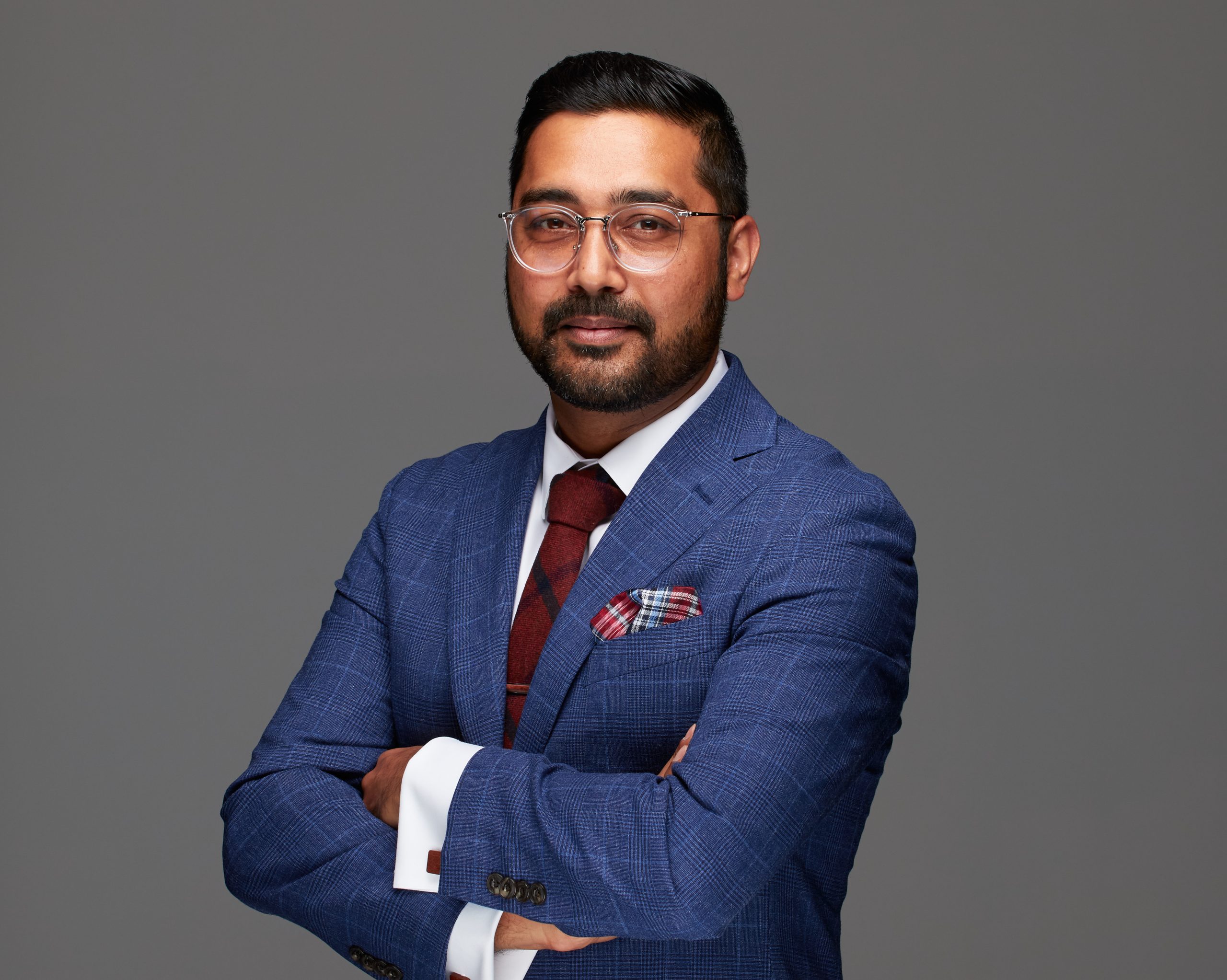This interview has been published by Namrata Singh and The SuperLawyer Team

To start, could you please introduce yourself to our readers, providing a glimpse into your professional journey and the pivotal moments that shaped your career?
I am Samar Jha, a government affairs and advocacy professional working for American Association of Retired Persons (AARP) in Washington D.C. and I lead the state and local housing advocacy for our organization. In my previous role, I was a corporate lawyer in India, having worked in a few of the big law firms in New Delhi, India. I think every professional experience I have had has contributed to my development as a professional. My academic experience in NALSAR coupled with my legal training at law firms has contributed immensely to my government affairs work. I also have to say that my time at University of Pennsylvania (Penn) at the law school (Penn Law) and at the Fels Institute of Government (Fels) was pivotal as it provided me with a massive boost to my work in the US. It took me time to finally find my niche, but I think I am now at a position where I can safely say that I love what I am doing.
You’ve navigated through various roles, from law firms to the City Council and now AARP. What motivated your transition from legal practice to government affairs, and how have these diverse experiences shaped your approach to advocacy?
It has been a fascinating journey for me. After working as a corporate lawyer for close to 6 years, I took a break to study at Penn Law. After my LLM, I was looking to do something different other than corporate law, subsequently, in 2015 I applied for a public policy fellowship at the Philadelphia City Council President’s office. I was lucky to be accepted as a fellow. At that time, I was the first foreign trained lawyer to be accepted as a fellow. That was the pivotal moment in my professional career, as I fell in love with public policy work. I got to work on issues ranging from criminal justice reform to housing issues. It was a wide range of public policy issues that I had the privilege of working on. At the end of my fellowship, I was recommended for a position of Director of Government and Public Affairs at the Greater Philadelphia Association of Realtor® (GPAR), which is a trade association in Philadelphia. I was lucky to get that position, which allowed me to do advocacy and government affairs at the city level and sometimes at the state level due to Philadelphia’s importance in the state of Pennsylvania. While I was working at GPAR, I also got my Master of Public Administration (MPA) at Fels. All these experiences provided me a solid grounding on US public policy and advocacy work. And then in November 2020, I joined AARP as their Government Affairs Director, where I oversee the state and local housing advocacy for our 53 state offices.
Your work at GPAR included advocacy at the city and state level. Could you share some insights into your work at GPAR?
As I had mentioned GPAR is a trade association that advocates for policies in relation to the real estate industry. As the lead advocacy person at GPAR, I was responsible for tracking legislation that pertained to our industry. I was tasked to review or draft legislation, provide adequate amendments, and/or negotiate legislation on behalf of the association. I was in touch with lawmakers and their staff to discuss the proposed bills. Invariably the work involved, making sure the legislation that eventually is signed into law does minimum harm to our members and residents of the City of Philadelphia. At GPAR, I also was tasked to work on political campaigns and work on fundraising for our political action committee (PAC).
With degrees from NALSAR, University of Pennsylvania Law School, and the Fels Institute of Government, your education has been diverse and extensive. How have these academic experiences contributed to your professional roles, especially in the areas of government affairs and public policy?
I always credit NALSAR, Penn Law, and Fels for providing me with a great foundation to my career. My time at NALSAR afforded me an opportunity to work at some great law firms in India, which provided me with the legal application, which I still use. Penn Law was instrumental in providing me the grounding on US Law and how the legal system works. And having passed the NY State Bar exam, I am hoping to be registered as an Attorney in the state of New York by the end of 2024. Lastly, a huge credit goes to Fels Institute of Government for getting me acclimated to the US public policy and advocacy arena. Each of these institutions have been instrumental in my life as a professional, and I will always be very grateful for that.
Your role as the Government Affairs Director at AARP is pivotal. Could you share some insights into your responsibilities and the impact you aim to make in this position, particularly in the context of housing advocacy and policies for Americans aged 50 and older?
While at GPAR, my work was geographically limited to Philadelphia. Whereas my role at AARP dramatically increased. AARP is a member-based organization that advocates for policies that improve quality of life for all ages, especially for older adults (typically 50+). It is the United States largest member organization with nearly 38 million members. AARP has 53 state offices (50 states and offices in Washington D.C., Puerto Rico, and American Virgin Islands). I am tasked to lead AARP’s local and state housing advocacy, which means I work with state offices on their housing advocacy. States offices reach out to me regarding legislation to be reviewed, provide adequate legislative language that protects our interest, or draft complete legislative text that can be shared with their respective lawmakers. It is interesting how your legal training tends to be so useful in government affairs work. I always say advocacy and government affairs is very similar to being a corporate lawyer. As a corporate lawyer, you work on strategy, drafting, and negotiation. That is exactly what you do in advocacy, as you strategize your legislative work, and then assist in drafting legislation, and it ends with negotiating with lawmakers and other stakeholders to pass an optimal legislation. Similar to clients in law firms, I treat my state offices my clients and try to provide the best quality service that I can.
Lastly, in addition to helping state offices, I am also invited to speak at various conferences and panel discussions at the local, state, and national level to discuss our housing policy and advocacy work. This is an important aspect of my work, as we try to engage with as many stakeholders as possible, because any legislative work, in the end, cannot be accomplished alone and needs allies and coalition members to cross the finish line. So, in a nutshell, that is what I do for AARP.
As the Co-Chair of the Young Professionals Committee for the World Heritage City Celebration in 2022, how did you contribute to the event, and what significance does preserving global heritage hold for you personally?
This was one of my favorite volunteering experiences. I was invited by the Global Philadelphia Association (GPA) to be the co-chair of the Young Professionals Committee for the World Heritage City Celebration in 2022. In 2015, GPA was successful in getting Philadelphia recognized as the first World Heritage City in the nation by the Organization of World Heritage Cities. GPA organizes this event every year to celebrate Philadelphia’s World Heritage Status and raise Philadelphia’s international profile and inspire a new level of local heritage recognition and activity. Along with my co-chair Toyin Ogunfolaju, we fundraised for the event, as well as being featured on videos to raise the profile of the event. We also welcomed the attendees at the event, and we were lucky to be part of the team that welcomed Ali Velshi, MSNBC anchor and the main draw of the event. Lastly, I love the city of Philadelphia, as I owe a lot to the city, so being part of the celebration was special to me.
You’ve received several awards and recognitions, such as the Audrey Miller Poritzky Award for Leadership. How do you balance professional achievement with your commitment to community service and leadership roles?
It was a pleasant surprise to be awarded the Audrey Miller Portizky Award for Leadership by the Fels Institute of Government. This was during my second year of my MPA program. My wife (Anjali Chainani) and I believe it is important to give back. For example, many people advised and mentored us while we were coming up during our career. Hence, our way of giving back is to mentor young professionals and hoping they will do the same for the next person. So, we do try to volunteer our time to things we believe in. I am part of the Penn Alumni Ambassador program where I get to have conversations with prospective undergraduate student applicants about their experience and my Penn experience. More recently, I was appointed to City of Philadelphia Mayor-Elect Cherelle Parker’s Transition team for Housing, Planning, and Development. The purpose of the transition committee is to come together and recommend plans and policies that the Mayor-Elect Parker can undertake for the city when she takes oath as the 100th and the first female Mayor of Philadelphia in January 2024. Fortunately, Anjali was also asked to serve on another transition committee. Therefore, as I mentioned, we try to give our time to causes that we believe in.
Outside of your professional life, what hobbies or personal interests do you engage in to unwind and find inspiration? How do these activities contribute to your overall well-being?
Anjali and I are avid cyclists. We love doing long distance cycling and try to go on the long cycling trails that Philadelphia and its suburbs have to offer. We also try to plan our vacations that involve cycling. Especially, if we are in a new country, we typically like cycling and going through the country. It is a great way of seeing parts of the country you may not see while driving. More recently, we were cycling through the Bavarian Alps in Germany and Austria.
Cycling helps us not only stay fit but also Anjali and I can spend time doing something we enjoy a lot. Both of us get busy with work and travel, therefore, it is important to take out time for ourselves and cycling together helps in doing that.
Navigating a career as dynamic as yours surely comes with challenges. Can you share some significant obstacles you’ve faced along the way and how you overcame them, offering any lessons for those aspiring to follow a similar path?
I have had my share of ups and downs in my professional career. Life after NALSAR looked easy, as I was able to earn a spot as an Associate in one of the biggest law firms in India. However, it took a toll on me mentally and physically. Moving to the US, I had to completely change my outlook towards networking. The way networking happens in India, at least when I was in India, is very different from how it is done in the US. I had to learn how to network for myself, which is not something I did in India, and it took some funny and embarrassing moments before I could find myself in the rooms where I belong. So, when I decided to pursue a policy position in the US, I had to start from scratch. Imagine, being an Indian, working as an advocacy and government affairs professional in a country like the US, and in one of the biggest cities in the country. Initially, I was non-existent for people, and no one knew who I was. I had to go through the grind of proving myself firstly, through my work and then through networking. I always tell upcoming professionals that, let your work product speak for you first before you want the person in front of you to engage with you.
As we conclude, we would love to hear your thoughts on the current state and future trajectory of government affairs and advocacy. What trends or developments do you foresee shaping these fields, and how can professionals prepare for the evolving landscape?
Government Affairs and advocacy is an ever-changing field of work. One must be very aware of, among other things, the political climate at the local, state, and federal level, the legal system, and the stakeholders in your issues. Whenever I talk to students, I explain the process of an idea becoming law. It starts with an idea, which people start talking in conferences and forums, and then policy is developed, which is used to draft a legislation, and is negotiated between stakeholders, and is deliberated in legislative chambers, and then it passes, eventually signed by the Executive. The process does not end there, as it needs to be implemented. Having said that, I think I have oversimplified the process a lot and it does not do justice to the field of work. Therefore, advocacy involves various parts, and students interested in entering the field of advocacy must be aware of the ever-changing aspects of the process.
In the US, government affairs and advocacy have rules, which are strictly governed by regulations at the local, state, and federal level. In India, government affairs and advocacy work are still evolving and need more codified legal requirements. When I was a law student in India, there weren’t many opportunities to enter policy and advocacy work apart from taking the UPSC exam and joining the Civil Services. However, currently there are some amazing policy think tanks in India and a lot of students are interested in pursuing policy work and it is very heartening to see more Indian law students willing to enter the field of policy and advocacy work. And I sincerely hope I get a chance to talk to policy and advocacy students in India as I would love to share the US advocacy perspective with them.
Get in touch with Samar Jha-
























